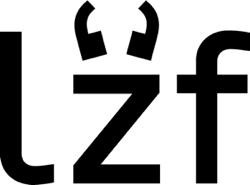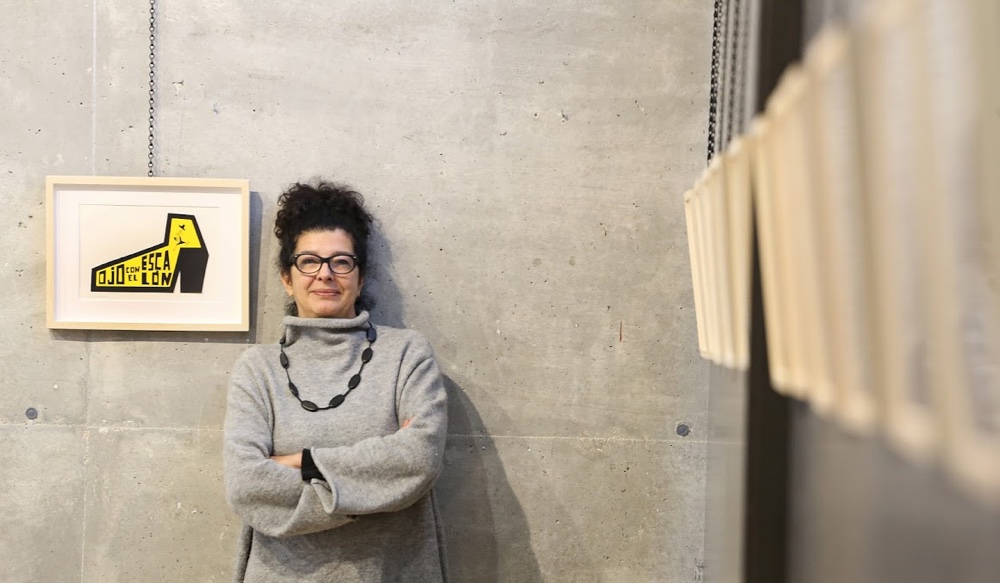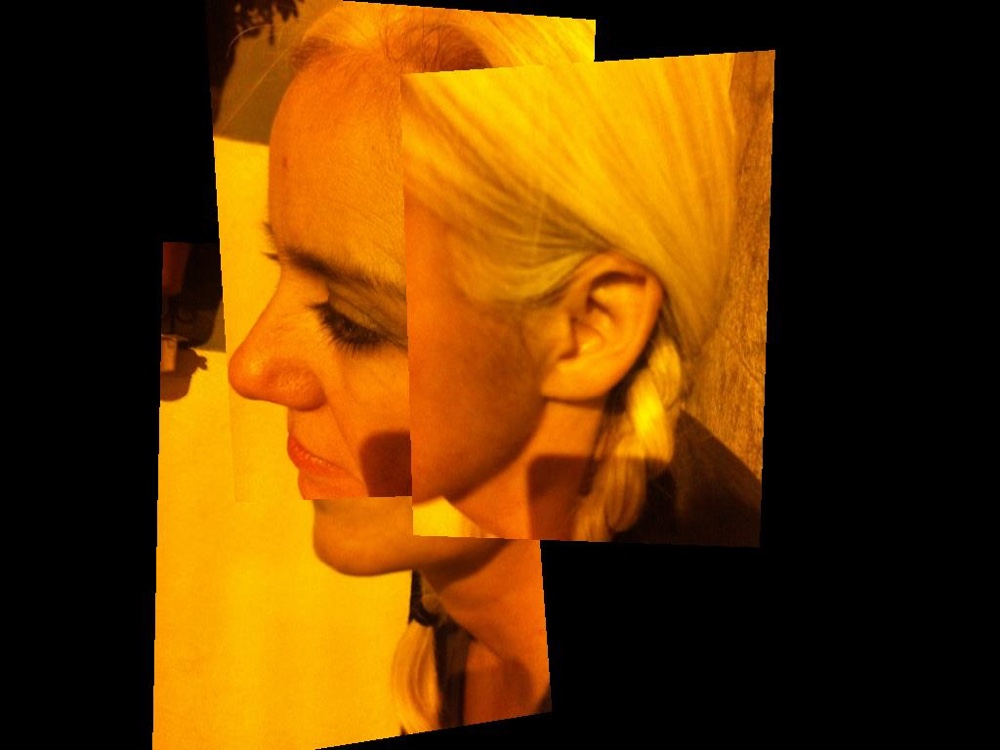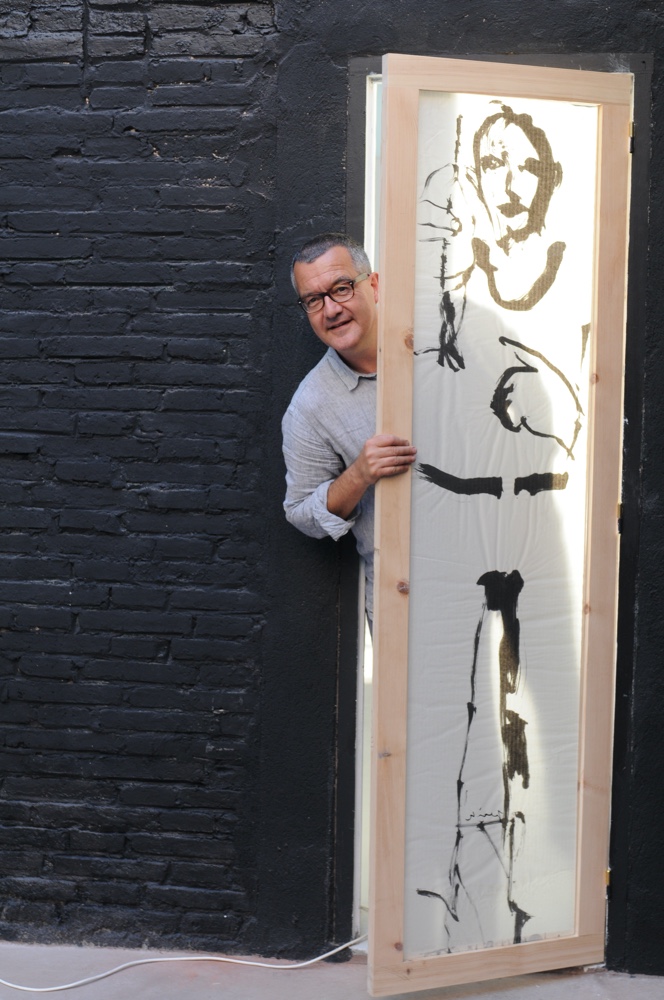#LZFFallBackOnArt
Describing Riki Blanco as an artist is like nailing jelly to the wall. When asked to describe himself, Blanco refrained from using any adjective lest he be pigeonholed. And so in lieu of an adjective, Blanco might best be described with a noun: communicator (and a proficient one at that). His work is experimental, eccentric, and sometimes a little esoteric (adjectives selected by this writer).
Spend a few moments perusing Riki Blanco’s website and you will discover a weird and wonderful collection of creative endeavours, from illustrations to animations, and music to live shows. For instance, the video trailer of Otrografía, a 2018 live performance that was written and directed by Blanco, is intriguing if not downright bizarre (in a delightfully offbeat manner). Indeed, using a literary reference, Blanco’s creative approach calls to mind Lewis Carroll’s rabbit hole.

Riki Blanco.
In a bid to make the current lockdown situation that little bit more enjoyable, Riki Blanco has kindly provided a number of his illustrations, free to download. Just click the image above, print them out, and put them up at home.
Who is Riki Blanco—how would you describe yourself?
(RB) I have an issue with identity—especially with the simplified description of one’s identity. I feel that naming any adjective that describes me will neutralise my right to be contradictory, to be changeable, and unexpected. I prefer to be described by my actions. In the professional arena, I also prefer to be represented by my work: www.rikiblanco.net.
You have a curious and eclectic body of work. Where do you find inspiration?
(RB) Over time, I have embraced a holistic concept of creativity. This is partly because I’m curious to see what happens if I play with other artistic disciplines. And it’s partly because increasingly, I feel the idea itself is at the centre of everything, and therefore each idea needs a specific expressive format to reach its full potential. In that sense I feel like a medium.

What is your creative process?
(RB) To illustrate, the first thing I do is research. I read and analyse the text, I unpack the substantial elements, and then I document myself visually: like a detective would do. Then, through the creative process, what I do is think graphically about how to solve all of the problems on the table. I search, through convergence, for a possible outcome that satisfies all of the elements on the scene. I also look for my own amazement, situating myself on the periphery of the common place, and finding a solution that, in some way, is also a new problem.

What makes someone a good artist? Are there certain qualities that you might look for?
(RB) For me a good artist is someone who knows how to swing between the subjective and the objective; between the emotional and the rational. Someone who doesn’t use borrowed formulas, not even his own. Someone who, for example, does not think about the result while in the middle of a creative process. It is someone who, above all, knows how to listen, and to listen to himself.

What was it like to work with LZF on the ‘Telling Tales’ communication campaign?
(RB) It was a very interesting assignment, actually. Despite the time that has passed, I still very much like the result. There is a simple sophistication in those images, a natural elegance, without pretentiousness. I feel the photographs, the illustrations, and the stories reinterpreted a time and a place, until something new and familiar was created.

How does the prevailing political climate influence the way in which you work and the topics you might address?
(RB) I feel that my function is to shake things up, exaggerate them, put them behind a prism, caricature them, dismember them, and try to show them as they are. Or at least, that this new perspective manifests a new way of seeing them. In the current context of opinions, nuances, fallacies, and rhetoric, I try to do my bit by showing a new plane, one that is closer to the root and the essence. In short, my proposal is an invitation to reflection and rethinking. And yes, to enervate the facades a little.

In a recent Instagram post, you talked about the need for people to adopt an anthropocentric view—pethaps in relation to dealing with the coronavirus pandemic? Can you say more.
(RB) This situation gives us the opportunity to think about the collective, the planetary. Our actions must be based not on individual desires, but on social responsibility. Whatever you are, whatever you want, whatever you feel, now is the time to think beyond ourselves: transcending, not upwards, but sideways. We should understand that we are units that encompass the figures of a global statistic, and that it’s okay to dilute and be, for a moment, part of that whole. This is why it is so difficult for me to talk about identity.
![]()
How will COVID-19 alter your approach to the way in which you work, if at all?
(RB) Beyond the feeling of being trapped, it is very difficult to be oblivious and insensitive to what is happening outside. That’s why I think it’s so hard to concentrate. It’s also the time to think about everything, to think about the function and the meaning of what we do: Is it useful? Is it our way of occupying our time and anaesthetising ourselves? Is it our flight forward? But, it is also true that this situation of collective vulnerability reverberates within us. All of our ornaments, masks, and armour have fallen away, until they make us feel mortal and finite. I feel it is precisely this internal movement, despite the dispersion of which I spoke, that is increasingly preparing us to work in a more authentic, honest and raw fashion, and to feel the need to do so. It is as if we have already begun to make decisions without being aware of them.

If you had the power to change the world, what one thing would you do?
(RB) I would make the price of things a little bit higher than one’s income and wealth—a bit like taxes. A house costing everyone the same amount of money. A kilogram of apples, for example, would cost 0.004% of monthly earnings. This would be akin to maintaining the essence of the capitalist system, and at the same time bringing it down.

Illustrations © Riki Blanco.













